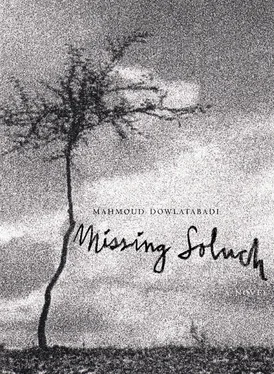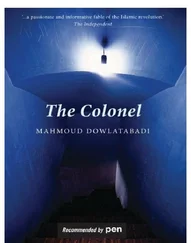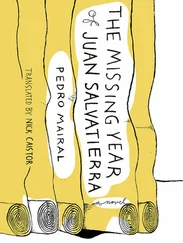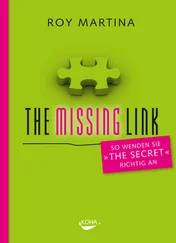Abrau spit out his oleander seed into the fire and asked, “No news from him?”
Mergan looked at him and said, “No.”
Abrau wanted to ask something about his father, but Mergan cut him off before he could speak.
“Drink up your tea!”
He gulped the rest of the cup of tea and sat silently. It was obvious that Mergan didn’t want to speak of Soluch. She never would allow them to speak of him. Forget him! She made every effort to forget her husband. Soluch was gone, and Mergan had already wrestled with his absence and had vanquished it. Perhaps her feelings were different from those of her children. No matter what the context or what the reason, she was heartless on one matter: she refused to allow his name to be spoken. The children simply did not have the right to speak of their father before her. So Abrau bit his tongue and said no more.
Hajer brought some snow in a handkerchief, which her mother took from her. Mergan placed the snow in a pan and then returned to the hearth.
“Will Mother Genav die, Mama?”
Mergan answered her daughter’s question, “Everyone dies, my dear.”
Mergan remembered that she still had a bit of sheep’s lard in her stores, so she rose and brought it. She scraped some lard off into the pan, which she placed on the fire. Then she took the tray of wheat grain to the pantry to put it away. By the time she was finished, Abbas had returned. Mergan took the cup of molasses from Abbas’ hand and poured it into the pan and then asked Hajer to lay out the tablecloth. Hajer brought the cloth while Abbas sat down by the hearth.
“In Agha Sadegh’s shop, everyone was talking about Mother Genav. They say she’s going to die!”
Abrau asked, “Did the syrup cost you all the money you took?”
Abbas replied without looking at his brother. “How much money do you think there was?”
Abrau said, “May it be more dirty than dog’s shit if you skimmed even a penny of my money!”
Abbas carelessly answered, “Fine!”
It was clear to Abrau that the syrup hadn’t cost what Abbas took. He even could guess, or almost be certain, that Abbas had mixed the syrup with water. But he had no grounds on which to make his claim. And Agha Sadegh wasn’t the type to talk; he saw himself as everyone’s confidant. Since he himself traded in stolen goods, he kept everything a secret. Abrau knew that he’d not be able to get information from Agha Sadegh. Since he refused to speak about his business in general, it was inconceivable that he’d give himself any trouble about a matter concerning a few coins, and that for a child like Abrau. Abrau decided he would prove Abbas’ theft. He began to pay close attention to everything he did. One thing was that Abbas seemed nervous; he couldn’t hide his awkwardness. Another was that suddenly he was acting like a dead mouse, refusing to speak or answer Abrau. In addition, he was half hiding his face in his collar, as if he were protecting a secret. Once the food was laid out, Abbas quickly gulped down a few mouthfuls of food and grabbed a piece of bread. He then began putting his shoes on and left the house. It was as if he’d grown wings and flew away! There must be a reason for his wanting to leave so quickly; it was clear he was up to something.
Abrau said to himself, “I’ll get him eventually!”
Abrau licked the bowl clean, slid to one side, and leaned against the wall.
“Put down the fire a bit and let’s set up a Kurdish hearth!”
Hajer set up a covering over the fire and placed a heavy blanket over it. Abrau crawled to the edge of the blanket and then slid under it, pulling it up to his nose. If Abbas hadn’t worried him as he had, he would have been able to spend the rest of the day in bliss beneath the heated blanket. But his mind was racing. He couldn’t imagine that Abbas had just gone to Ali Genav’s house for a game. No matter what he thought of Ali Genav, Abrau couldn’t imagine that on such a day — with his wife beaten and broken, and his mother breathing her final breaths — he would sit down with the usual low-lifes to play cards. But Agha Sadegh wouldn’t give Abbas the time of day in his games; he wouldn’t even let him into the back storeroom. This was because Abbas didn’t have the money to play and wasn’t of the same level and standing as those who came to play in Agha Sadegh’s storeroom. His players were respectable people. One was the accountant for Hajj Ali’s affairs. Another was Murad Dashtban. Another was Agha Vaseghi, one of the respectable landowners of Zaminej. There were one or two others who had only recently joined this circle; Khodadad and Hamdullah, the latter of whom self-admittedly was involved in theft and rustling. So it was likely Abbas had gathered up a few people and was this moment in a stable or in the storeroom of some abandoned house busy with his bajal pieces! There was a reason for his sorting through his collection of game pieces in the morning; he’d been planning this all along. Who knows if he might not have sold half of the wheat grains he’d earned and was at Agha Sadegh’s shop on the way home? Anything was possible with him.
“Mama, do you think the wheat Abbas brought was all of the grain he earned?”
Mergan, who was still licking her fingers, said, “You’re such a pessimist, boy! Of course it was all he earned. You think that woman would be able to pay him more than that?”
Abrau didn’t say anything further. Mergan said, “Lay down a bit and take a nap. The hearth is so nice and warm!”
Abrau stuttered, “I don’t believe it! Even if Abbas were to say that yogurt’s white, I wouldn’t believe it!”
Mergan didn’t reply. She made herself busy undoing the knots in Hajer’s hair. Abrau slid farther beneath the blanket and stretched his feet. The warmth of the hearth banished the fatigue and cold, and despite Abrau’s restlessness, his body slowly surrendered to pleasure. His eyelids grew heavy and sleep beckoned. For this moment, the world was nothing but a comforting crib.
Abrau’s gentle snoring brought peace of mind to Mergan. She unconsciously stared at her son’s face. His eyelids and eyelashes had closed, and his face was calm. The canker sore at the corner of his mouth had nearly healed. His short hair was clinging to his forehead and framed his wide face. His expression was pure and calm like the surface of water. Mergan’s heart wanted to go and sneak a kiss on her son’s cheek. But something like an invisible barrier prohibited her. She was ashamed to show her affection for him; that was her nature. She simply couldn’t be open with her kindness; she didn’t know how. Perhaps, as with showing your love to a beloved, it simply needed the right opportunity to occur. Sometimes, if Mergan felt affectionate, a hostile weight erected a barrier, blocking her from acting on it. So expressing her affection had become the most alien impulse to her. In its place, she acted with roughness and hostility. She used her claws and teeth and anger. This became a habit, her way of reacting harshly to everything. She had been dispossessed — one could say plundered — of the ability to express kindness. And so only in her most calm moments could Mergan feel it once again, with tenderness. Then, it was as if a calm sea had handed her a pearl — the pearl of kindness.
Mergan was now at ease; her face was calm. Along with her daughter, she slid under the blanket, leaning on one elbow and playing with Hajer’s hair with her free hand. Hajer was lying relaxed and satisfied next to her mother, as if nothing bad had ever happened and would never happen. Her mother was beside her — what could ever disturb her? Mergan sang a lullaby in her ear, with a gentle voice. Soft and gentle, pleasant to both the ear and the heart.
“The times change. We have both day and night. There’s both lightness and dark. Heights and depths, times of plenty and need. Winter’s nearly over; it’s ending. Spring will soon arrive. And the air will be warmer. People will be generous, and we will work. Scarcity will be gone. We’ll set out to the fields and prairies. God’s fields will be all green. Milk and yogurt will be plentiful. Even if we don’t have any sheep. Others may have more, or less. We’ll have a bit of buttermilk to wet our bread. Your brothers will grow up. Day by day, growing, working. You’ll grow older, taller. Become beautiful, become a woman. Your breasts and body will fill in. You’ll become your own girl, when you breathe the air of spring. What don’t you have that other girls have? You’ll be good for the rest of your life. Thank God you’re healthy and strong. You’re not deaf or dumb or blind. If you find yourself just skin and bones, it’ll only be because of winter. But in the winter everyone suffers, and in the spring a bit of water flows beneath your skin. But there’s no hurry. There’s two years till you’re fourteen. In this time, I’ll feed you the bread from my own mouth. I won’t let hunger whiten your eyes. I won’t let you be hurt. I’ll endure hard times, but will raise you day to day. I won’t let you go hungry. I’ll protect you, raise you. And eventually someone will come to ask for your hand, and take you to his house, and spend his days with you. Not today, tomorrow. And let them dream of the day. My daughter’s like a bouquet of flowers. Her father’s traveling for work, like so many others do. A man is built to travel, all men do. All men suffer danger.”
Читать дальше












